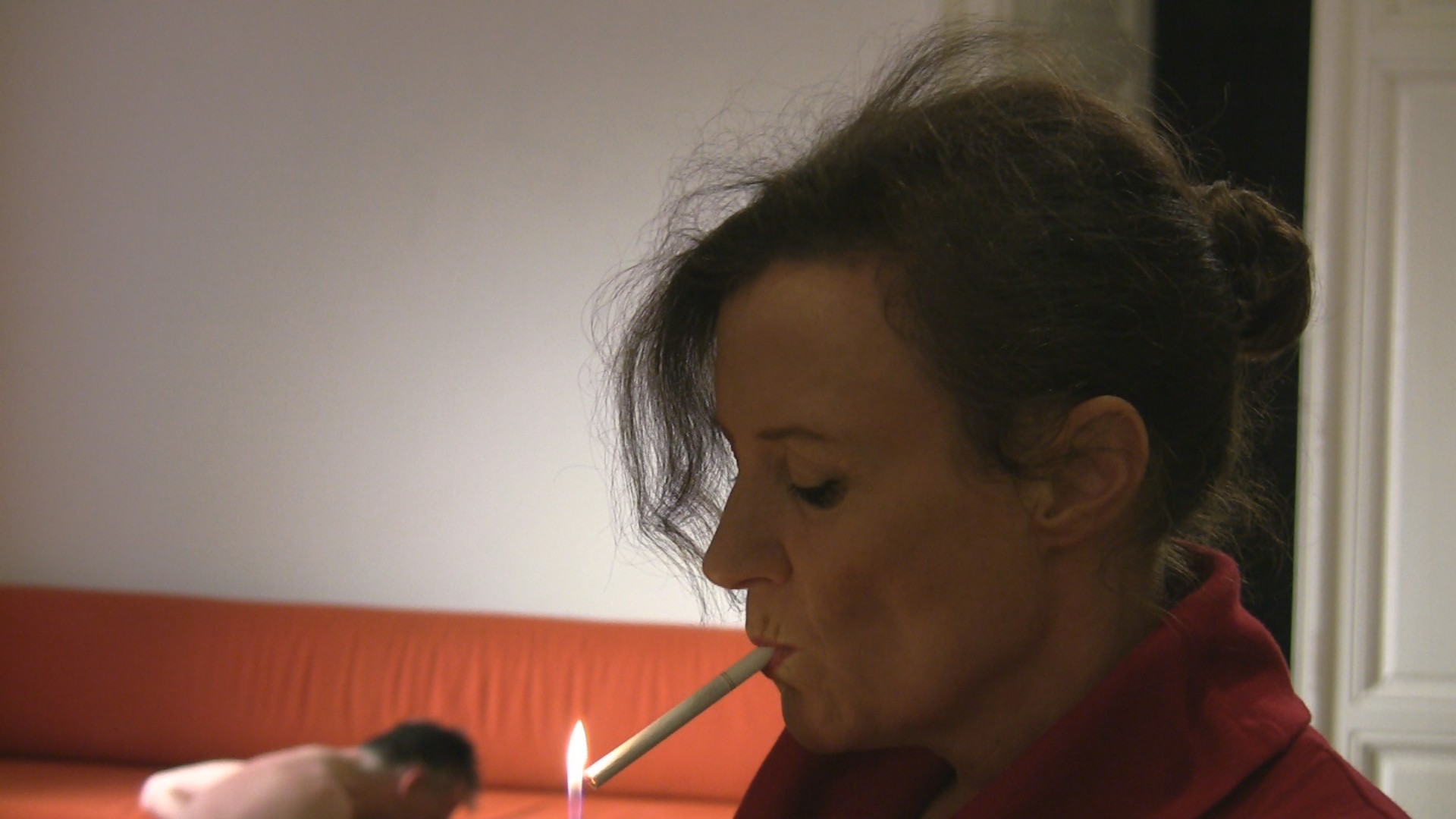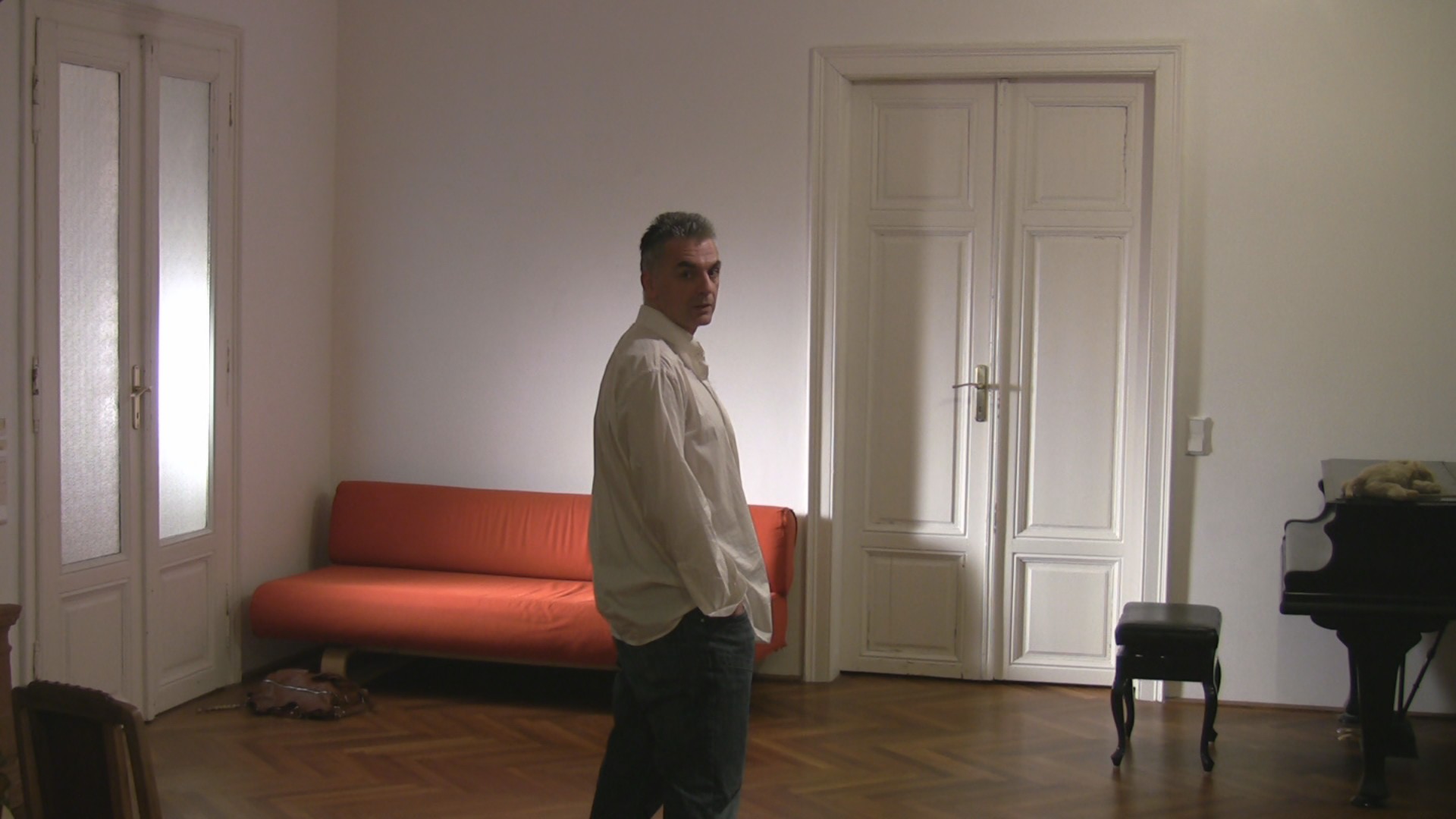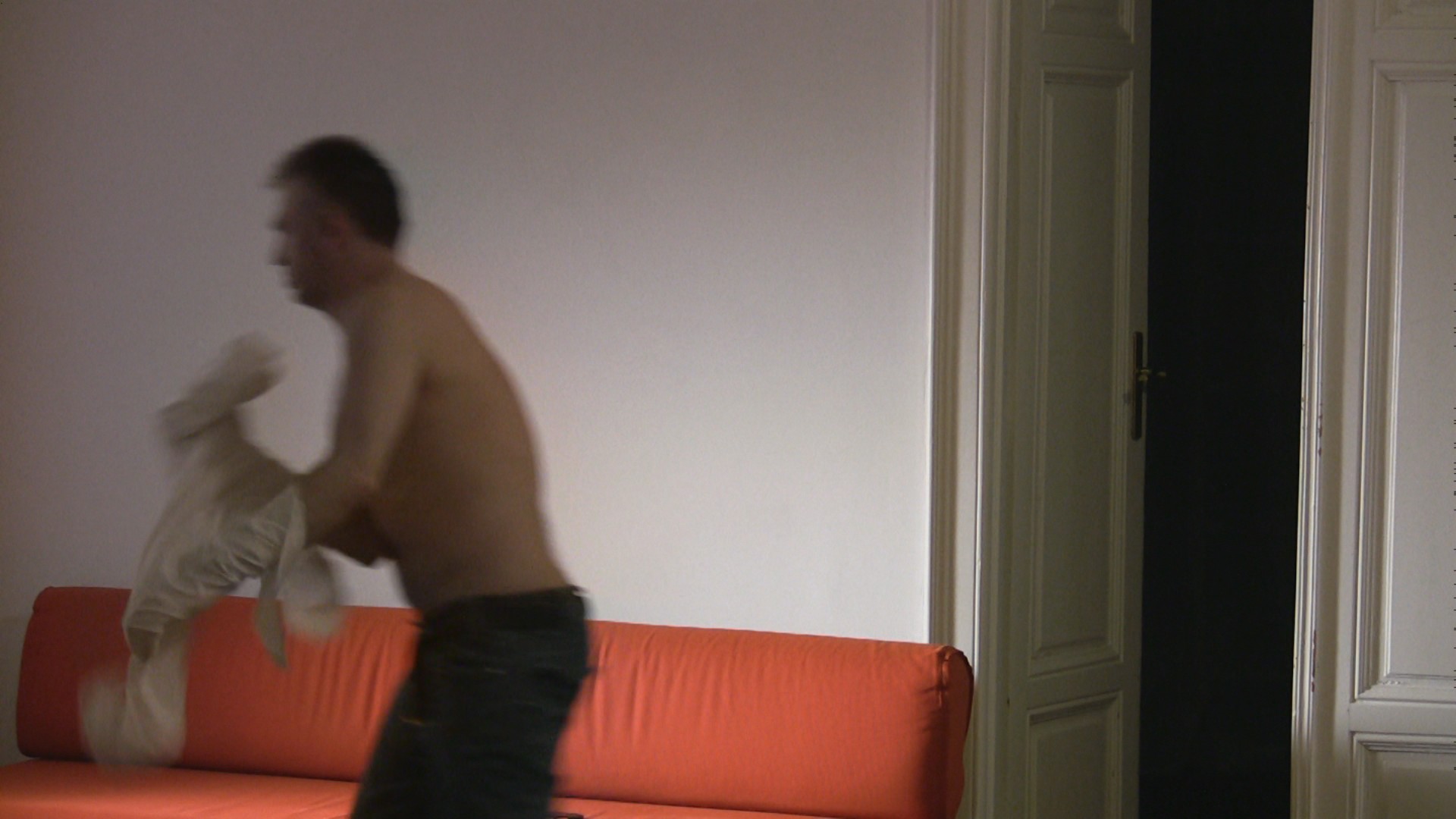TAPE END
AT 2011
Colour, 60 min., HD, 16:9, Stereo, German, subtitles in English
WP Moscow IFF
Written, directed and produced by Ludwig Wüst Co-produced by Matthias Pázmándy Cinematographer Klemens Koscher Sound Gregor Rašek Post-production Samuel Käppeli Assistant Anna Sautner
With Nenad Šmigoc, Suse Lichtenberger, Claudia Martini, Zoë Riedl
Supported by Stadt Wien MA7
tape-end.net
Colour, 60 min., HD, 16:9, Stereo, German, subtitles in English
WP Moscow IFF
Written, directed and produced by Ludwig Wüst Co-produced by Matthias Pázmándy Cinematographer Klemens Koscher Sound Gregor Rašek Post-production Samuel Käppeli Assistant Anna Sautner
With Nenad Šmigoc, Suse Lichtenberger, Claudia Martini, Zoë Riedl
Supported by Stadt Wien MA7
tape-end.net
Synopsis
TAPE END, that is a room, a shot, one hour without a cut and 4 people, in whose relations the great themes of cinema are mirrored: Love, power, betrayal, revenge, atonement.Barbara Pichler
Director’s Statement
TAPE END is an attempt to extinguish the director. I began to have a vague idea of TAPE END during rehearsals for my stage adaptation of Ingmar Bergman's “Efter Repetichonen“. Bergman always wanted to make a movie without any cut, yet unfortunately he never came to realize this concept. TAPE END is the reconstruction of an experiment, consequence of possible incidents. The film shows the moment of its creation. During shooting, only the actors were present. The director was replaced by an actor performing as director – and also operating the camera. The by-product of this „live“-performance is a 60 min realtime video tape. The screening of this actual movie destroys the spectator's illusions from the very start. Right in the first second the film refers to its making and with that to its central topic, that is, vanity. No movie (no work of art one might ask) is made without this „fuel“ enabling the director to, well, even to walk over dead bodies. TAPE END reflects upon this vanity and the unforeseeable consequences of wanting to stage life. To capture life by setting up a trap, and then be stuck oneself. Including thoughts – and rather critical thoughts – about filmmaker's megalomania to drag something out of a shady order yet without being prepared to respond by any means to smashing chaos. The artist is a passion driven offender. His existential fear and denial result in the necessity of a counter-draft. Which may well be a dystopia. The first film in film history was a horror film: during the screening of „l'arrivée du train en gare“ the audience ran from the movie theatre. The motive of death is treated narratively, there's no images to the related events, just like in the messenger's report in ancient drama. As soon as the effect has acted on the character as well as on the audience, the next statement is produced, that is, the next lie. TAPE END is but one big lie and in its last seconds, even an auto-deconstruction takes place. The only truth to be found in this movie lies in the straight 60 minutes without any cut. TAPE END is an entertainment film. Organized in three act (drama/tragedy and satyr play), the film quotes the myth of Medea, relates human solitude as shown in Edward Hoppers paintings, draws the silence of empty rooms – and the outer noise.


"A more direct film is hard to imagine."
RAY, March 2011
"This exceptional work stands alone in the Austrian film scene."
Andrey Arnold, March 2011, Movienerd
"An inferno of vanities."
Christoph Huber, 27.03.2011, Die Presse
"Naked and unmediated feelings."
Markus Keuschnigg, 25.03.2011, FM4
"Ludwig Wüst tackles with the much-debated sisterhood between theatre and cinema in a 60-minutes film that would have made Ingmar Bergman proud. ... Wüst’s chamber piece escalates with tension and turns out to be an exercise of dramatic creativity, proving that so much can be done with so little means: one camera, four people in one room and a few seconds of sound effects."
Andreaa Dobre, 28.03.2011, Nisimazine
RAY, March 2011
"This exceptional work stands alone in the Austrian film scene."
Andrey Arnold, March 2011, Movienerd
"An inferno of vanities."
Christoph Huber, 27.03.2011, Die Presse
"Naked and unmediated feelings."
Markus Keuschnigg, 25.03.2011, FM4
"Ludwig Wüst tackles with the much-debated sisterhood between theatre and cinema in a 60-minutes film that would have made Ingmar Bergman proud. ... Wüst’s chamber piece escalates with tension and turns out to be an exercise of dramatic creativity, proving that so much can be done with so little means: one camera, four people in one room and a few seconds of sound effects."
Andreaa Dobre, 28.03.2011, Nisimazine